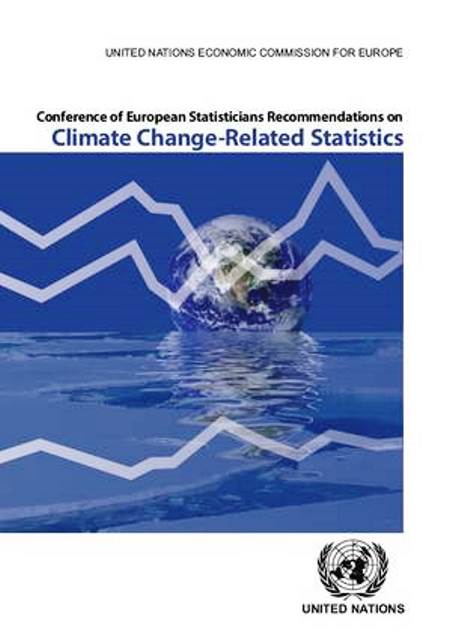
UNECE releases the first ever Recommendations on Climate Change-Related Statistics, which aim at improving existing official statistics to support climate change analysis and the reporting on greenhouse gas emissions.
The Recommendations define the scope of what we mean by climate change-related statistics. They include statistics that measure the human causes of climate change, impacts of climate change on human and natural systems, efforts of humans to avoid the consequences (mitigation) as well as efforts to adapt to these consequences (adaptation).
The availability, format and usefulness of official statistics need to be improved to match the data needs for climate change analysis and policy making. The Recommendations highlight areas where official statisticians can contribute with concrete actions, for instance:
- Develop statistical offices’ portals to serve as a gateway to climate change information;
- Geo-reference statistical data on population, infrastructure, enterprises and land use etc. to enable analysis of risks and vulnerability of population in areas prone to flooding, drought or other effects of climate change;
- Define a key indicator set for climate policies that would be internationally comparable whereas now only some countries have their own indicator sets that cannot easily be compared across countries.
Most developed countries publish information on greenhouse gas emissions through a well-established data reporting process, guided by the United Nations Framework Convention on Climate Change (UNFCCC). Yet, in many countries official statistics could be better used for the inventories to reduce duplication of effort and improve data quality.
In addition, there is an increasing need for data on the impacts of climate change and efforts to mitigate or adapt to it. Official statistics include data that should be linked with climate information to analyse:
- Impacts on housing, social conditions and equity, economic sectors, poverty;
- Changes in access to services and resources due to extreme events and disasters;
- Health impacts from extreme weather, reduced air quality and climate-sensitive diseases;
- Costs caused by climate change for industry and society;
- Costs and effects of policies and measures to mitigate climate change or adapt to it;
- Revenue from development of environment-friendly technology;
- Impact of technological exchange and financing on countries’ resilience to climate change.
UNECE, as the Secretariat for the Conference of European Statisticians, which brings together the major players in the field of statistics, is well placed to ensure enhanced cooperation between the statistical and climate communities at European level.
UNECE is now launching follow-up work to the Recommendations:
- To advance the work on climate change-related statistics by holding a regular forum for users and producers of these statistics with the next meeting in autumn 2015 and by promoting cooperation between the compilers of greenhouse gas inventories and official statistics.
- Around 20 experts from different countries and organisations started in December 2014 work to define an internationally comparable set of key climate change-related statistics and indicators.
Note to editors
The Recommendations are the result of three years of hard work by a dedicated UNECE Task Force, created at the request of heads of national statistical offices of UNECE member states. Canada chaired the Task Force that involved Finland, Italy, Mexico, Norway, Qatar and the United Kingdom and a number of international organisations, such as European Environment Agency, Eurostat and DG Climate Action of the European Commission. They were endorsed by more than 60 countries and international organisations endorsed the Recommendations at the plenary session of the Conference of European Statisticians in 2014.
The Task Force established close collaboration with the Intergovernmental Panel on Climate Change (IPCC), United Nations Food and Agriculture Organisation (FAO), UNFCCC and World Meteorological Organisation (WMO) who provided valuable input to the Recommendations.
The Conference of European Statisticians discussed the way forward and countries underlined the need for follow-up activities and guidance in implementing the Recommendations.

